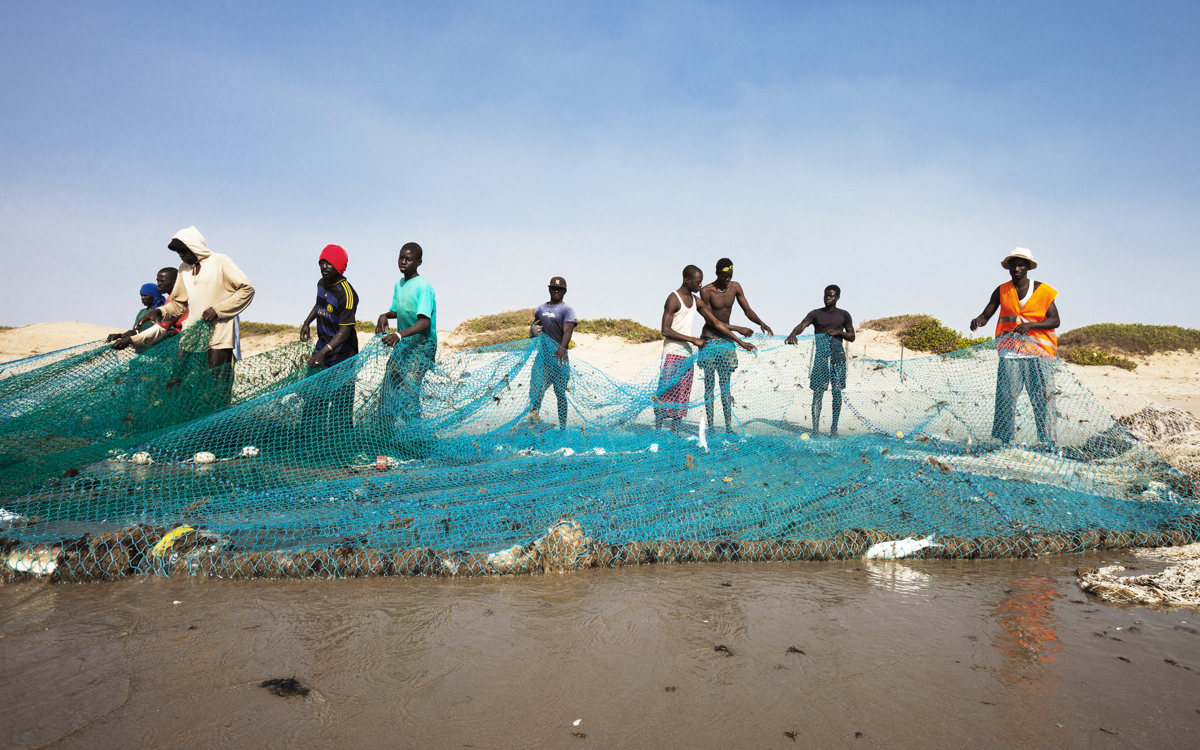By Olusegun Oyebola


Oyediran Olusegun Oyebola
Start with the end in mind
To tackle the growing challenges created by climate change, global leaders from across the continents gather annually at COP (Conference of Parties), to deliberate and agree the next phase and steps for appropriate climate action, such as drawing up strategies to achieve the agreed targets.
Reflecting on how can we work together in advance of COP27 to drive climate action, I am reminded of how traditional fishing communities have mastered the art of collaboration to help each other achieve better results in their profession, and I wonder what we can learn from them.
Applying traditional practises to current crises
Fishing is a traditional occupation for riverine and coastal communities with everyone, including wives and children, often playing a role across the value chain of fish production, processing and marketing. This traditional concept enables the fishing community to reduce post-harvest losses and encourages questions on whether value chains could be efficiently explored for mitigating and addressing the climate emergency.
Catching fish can be mechanical, requiring specific technical skills and at times requiring joint effort in fishing operations. For example, by fishing in crews, each undertakes a specific role according to their technical and technological skills. On the boat, a fisher may drive the canoe while others set the net to make a catch. Several fishing boats may collaborate to encircle a school of fish to ensure the best catch possible – a result which would be challenging and less productive for an individual fisher.
Collaboration in the fishing community also lends itself to supporting each other through challenging times. For example, the draining of water bodies or small rivers to enable the capture of fish is a task that individual fishers dare not try. Collaborating also ensures a share of any catch.

In the fishing industry, fish mongers support fishers with loans and fishing gear while the fisher’s household engage in fish processing and marketing to enable repayment. Nations of the world could enable a similar and creative form of collaboration and production to synergize and combine global resources to act on diminishing resources.
The benefits of collaborative partnerships, including addressing challenges and compromise could create effective, productive, and efficient responses to climate actions. Partners can then engage in co-management of declining natural resources and adapting and mitigating climate impacts and respond accordingly, such as collaborating on the surveillance efforts of damaging environmental activities.
In the same way that local fishermen understand each other’s diverse skills and work together for the best result, at COP, multiple stakeholders are needed to understand complex synergies and come up with approaches to tackle the complexities of climate change. Identifying special capabilities and leveraging these by dividing roles could help climate actors make progressive and effective action in the lead up to COP27, which will take place in Egypt later this year.
Partnerships for policy and legal
Partnerships could be initiated for effective policy development and legal actions at local, regional, and multiregional levels for surveillance on the use of the planets resources. For example, collective efforts to protect unlawful tree felling would be instrumental to the conservation of natural carbon sinks. This, in turn, would protect soil structure and prevent siltation of water basins. Such actions could establish appropriate pay backs to partnering participants in the future.
Collaboration could also enable scientists to innovate more climate-smart approaches to the climate crisis, and business and family units could be empowered to recognise and prevent resource wastage. As a country’s socioeconomic and technical strength differs, developed nations could improve provisions for technical and financial support for developing countries in partnership; after all, the impact of industrialization in developed countries is not restricted to the industrialized world.
By taking a cue from the collaborative aspect of traditional fishing and applying it to climate adaptation and mitigation, to support and develop effective, productive and efficient policy change, such a global co-operation could lead the way to a safer and fairer planet.
